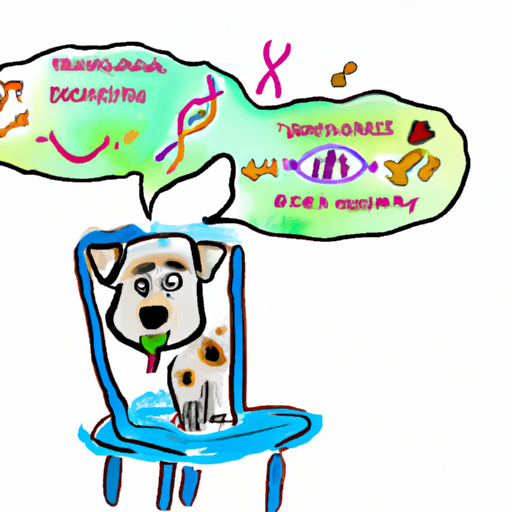Drooling, something we often associate with dogs, can be a source of curiosity. You, as a dog caregiver, may have wondered why your furry friend seems to produce so much saliva, often at seemingly random times.
Let’s delve into this interesting topic to better understand why dogs drool so much, and when, as a caregiver, you should be concerned.
Understanding Normal Dog Drooling
Dogs, much like humans, drool as a normal part of their bodily functions. Saliva aids in digestion and oral health. It helps to moisten food, making it easier to swallow, and contains enzymes that kickstart the digestion process. Saliva also aids in oral hygiene by rinsing away bacteria and helping to prevent tooth decay.
- Different breeds drool more than others: Breeds with loose, floppy lips such as Saint Bernards and Mastiffs are more prone to drooling.
- Anticipation of food: Dogs often drool in anticipation of a meal.
- Heat and exercise: Dogs may drool more when they are hot or have been exercising.
When Dog Drooling Becomes a Concern
While drooling can be normal, excessive drooling, or hypersalivation, can indicate a variety of health problems. Here are some reasons why your dog might be drooling excessively:
- Dental disease: A common cause of excessive drooling in dogs is dental disease. This includes conditions such as gum disease, tooth decay, oral tumors, or a foreign object stuck in the mouth.
- Heat stroke: Dogs can’t sweat like humans do. They pant to cool down, and this can lead to increased salivation.
- Nausea or sickness: Just like humans, dogs can produce extra saliva when they’re feeling sick or nauseous.
- Poisoning: Certain toxic substances can cause excessive drooling in dogs.
Always consult with a vet if you notice unexplained or sudden changes in your dog’s drooling habits.
Health Conditions Associated with Excessive Drooling in Dogs
Several health conditions can lead to excessive drooling in dogs. These include:
| Condition | Symptoms |
|---|---|
| Rabies | Aggression, difficulty swallowing, paralysis |
| Epilepsy | Seizures, loss of consciousness, drooling |
| Kidney disease | Increased thirst, decreased appetite, vomiting |
| Liver disease | Jaundice, increased thirst, weight loss |
How to Manage Your Dog’s Drooling
As a caregiver, you can take several steps to manage your dog’s drooling.
- Maintain oral hygiene: Regular teeth cleaning can help prevent dental diseases, a common cause of excessive drooling.
- Provide a cool environment: This can help prevent heat stroke, another cause of increased salivation.
- Keep poisonous substances out of reach: This can help prevent accidental ingestion and subsequent drooling.
- Regular vet visits: Regular check-ups can help identify potential health issues early.
Frequently Asked Questions
Q: Are certain breeds more prone to drooling?
A: Yes. Breeds with loose, floppy lips such as the Saint Bernard, Mastiff, and Newfoundland are more prone to drooling.
Q: Is drooling a sign of stress in dogs?
A: Yes, drooling can be a sign of stress or anxiety in dogs. If your dog is drooling excessively during a thunderstorm, car ride, or other stressful event, it may be a sign they are feeling anxious.
Q: Can drooling be a sign of pain in dogs?
A: Yes. If your dog is drooling more than usual and seems to be in discomfort, it could be a sign they are in pain. Always consult with your vet if you notice changes in your dog’s drooling habits.
Q: Is drooling a sign of illness in dogs?
A: It can be. While some amount of drooling is normal, sudden changes or excessive drooling can be a sign of illness. If you’re concerned, it’s always best to consult with your vet.
Q: How can I help reduce my dog’s drooling?
A: Regular oral hygiene, providing a cool environment, keeping poisonous substances out of reach, and regular vet visits can all help manage your dog’s drooling.
In conclusion, understanding why dogs drool so much is an essential part of being a responsible caregiver. It allows you to distinguish between normal behavior and potential health concerns. Always remember to consult with a vet if you’re unsure or concerned about your dog’s drooling.



